TFW you wake up an hour early for work and spend it reading about historical anarchists and propaganda of the deed.

hit a road block with the discrete transistor computer project yet again
there's this computer someone made with TTL chips that has brainfuck as its ISA
it is appealing to make in a discrete transistor design because it has no registers or an ALU
however, these 74193 ICs are horrendously complicated--up/down counters with all the loading/clearing/presetting logic
up/down counters are by themselves easy, they're just chained Toggle flip flops
this is the low power schottky (LS) version, the HC version uses 3 XOR gates which are a nightmare to build
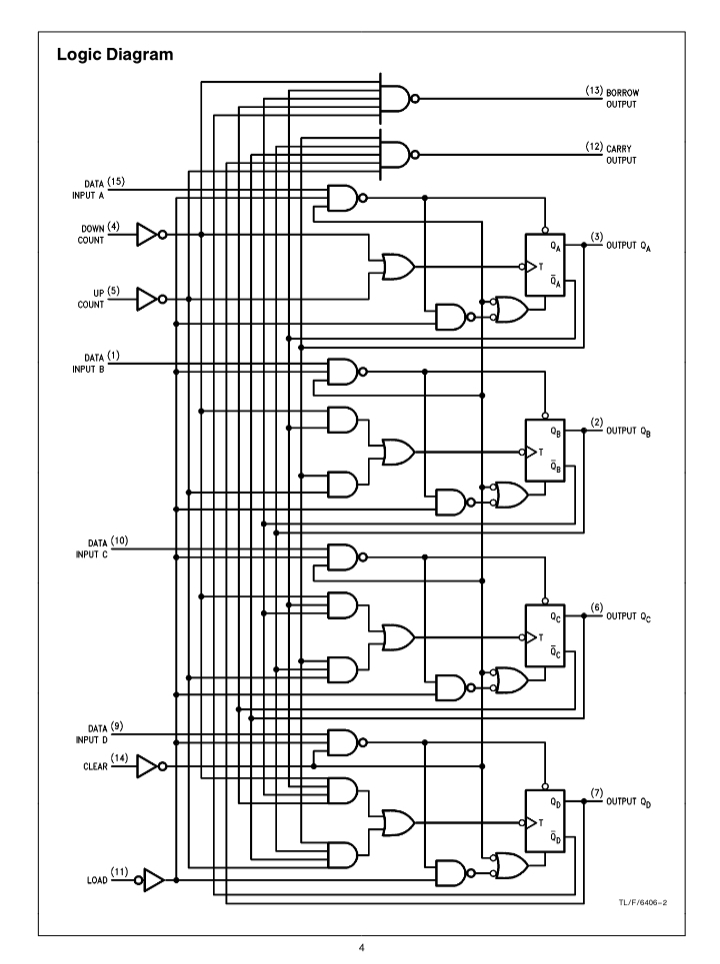
New deep dive into #Elite on the #Commodore64 (3/9): The split-screen mode
Everyone knows about the BBC Micro's split-screen mode in Elite, but it turns out that the #C64 version has one too. I never knew! Find out more at:
https://elite.bbcelite.com/deep_dives/the_split-screen_mode_commodore_64.html
"The people who were put in the camps then were communists. Who cared about them? We knew it, it was printed in the newspapers."
(Yes, Niemöller said that.)
First impressions after a few days with #tangara
https://jasongullickson.com/tangara-first-impressions.html
Cc: @jacqueline
I hope they never change it.
c64 being used in a bakery.
So apparently in 1993, Avon (the MLM (not that MLM (or that kind either))) commissioned a Soft Foam Telephone.
I got one for @gewt but sadly, it arrived broken.

phase #3
from this modularity you are able to do this:
(A) a JK flip flop illustrating operation in toggle mode (effectively operating as a frequency divider)
(B) same circuit as above but operation @ 1kHz
(C) a digital logic gate schematic illustrating a JK flip flop (note preset and clear must be held HIGH for normal operation)
(D) that same logic gate schematic implemented in traditional DTL NANDs
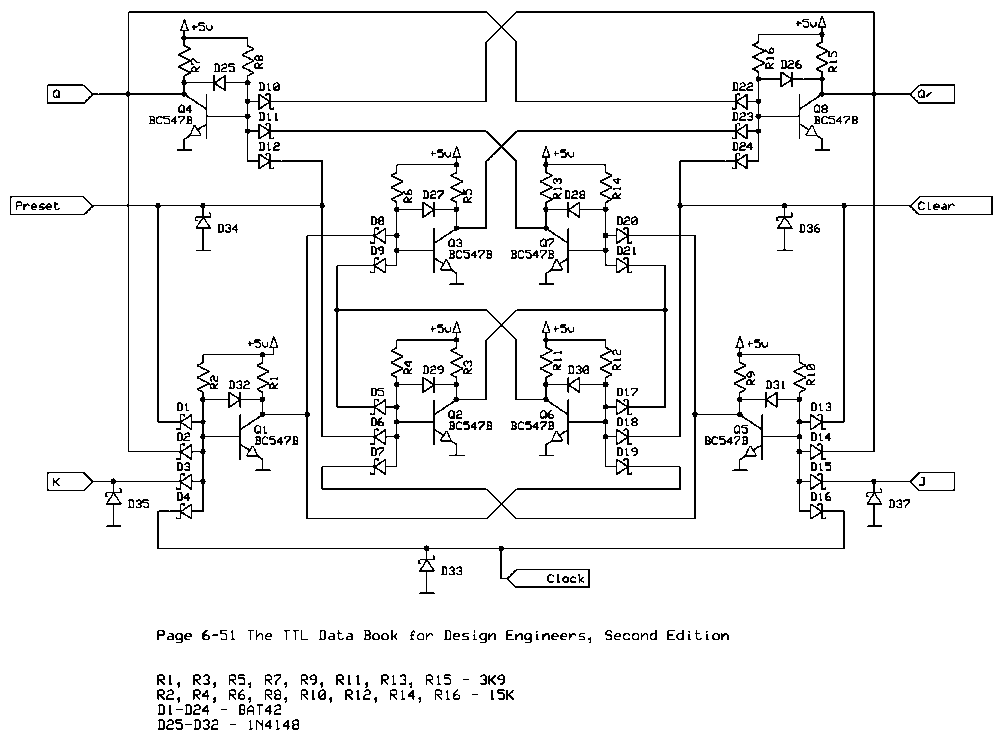
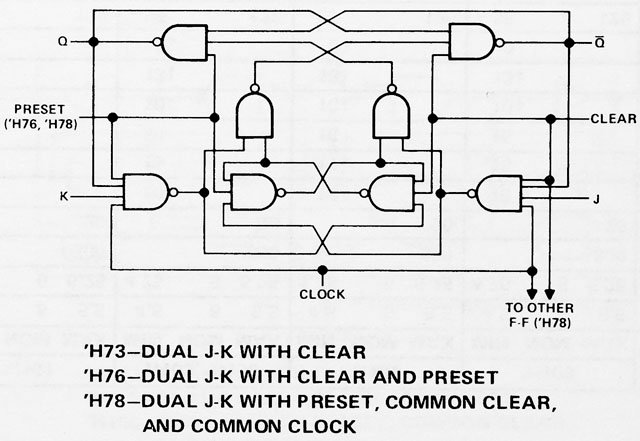
phase #2
here is:
(A) a single traditional DTL NAND illustrating operation @ 500 mHz
(B) a traditional NAND driving a NOT gate @ 500 mHz
if you want i can step you through the electrical characteristics of the circuit but the animations are fairly self-explanatory
re: phase #1
okay turns out i made a huge mistake, the traditional DTL NAND does work, i was somehow systematically inputting it incorrectly into the computer..
phase #1
the tl;dr is that the 'traditional' NAND most hackers seem to have been basing their computers on is seriously flawed, and we'll get into why in the next post
for now, compare and contrast:
(A) the traditional DTL NAND; (B) the modified one that replaces an implied steering diode between the diode logic and the transistor amplifier; (C) the TTL ('DTL') NAND of the famous digital electronics hacker dieter, which uses two transistors in place of the diode logic in the traditional.
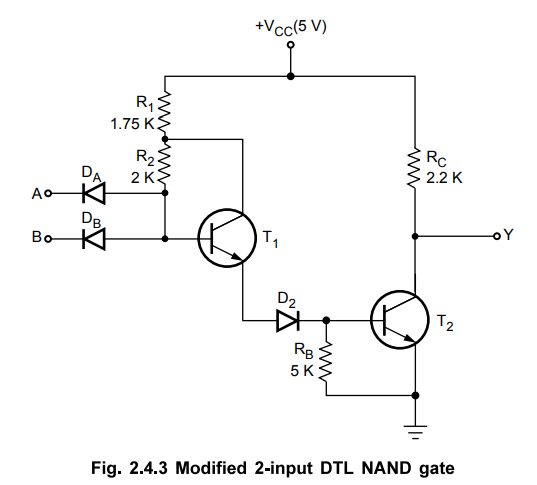
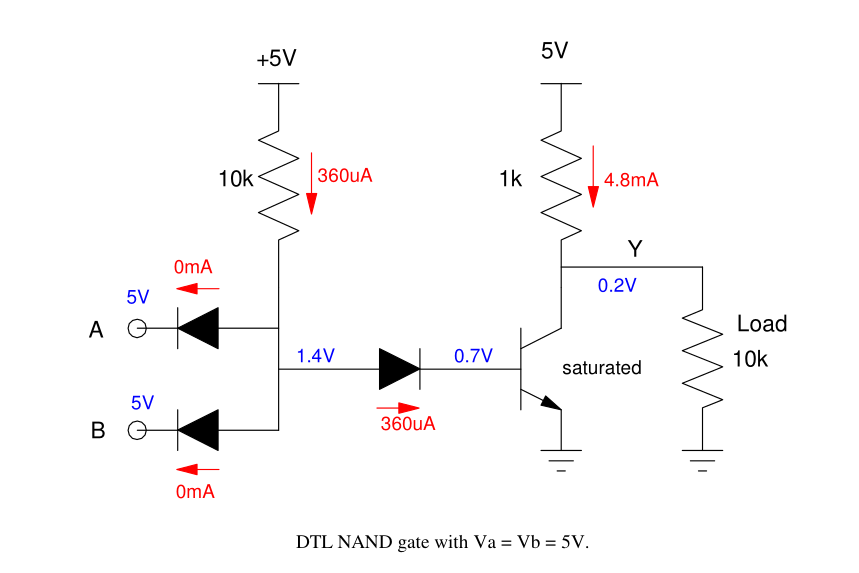
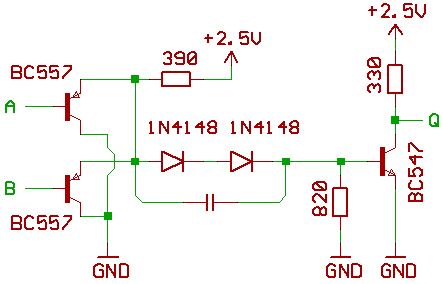
hey everyone this is my new peertube
https://spectra.video/a/vidak/video-channels
please follow me there, i am going to migrate from diode.zone
okay major advances made on the discrete transistor computer
turns out the DTL logic NAND i have been relying on for years is seriously flawed
ummm... i recorded videos of everything in simulation with a 500 mHz clock (nice and slow)
not sure where the best place to organise everything for releasing all this is, probably my hackaday
been simulating some diode transistor logic designs and something is not right--none of the T or JK flip flops i am inputting are working.
the electrical characteristics of these transistors and diodes does not look right, and many second stage gates are not being properly driven by first stage ones.
hmmm...
could be impedance issues (ie fan in/out)
it's lucky i am simulating first, i would have wasted a lot of time otherwise
New deep dive into #Elite on the #Commodore64 (1/9): The C64 Elite memory map
The #C64 has a lot of memory, and Elite uses all but 897 bytes - that's just 1.4% of the machine's 64K of RAM. Find out how at:
https://elite.bbcelite.com/deep_dives/the_elite_memory_map_commodore_64.html
@ozzelot if it uses MTP it probably will...?
they don't make gadgets anymore. every new tech thing is like a little white plastic egg that needs an email address and credit card number to turn on & has a built in microphone even though it has no need for one whatsoever


